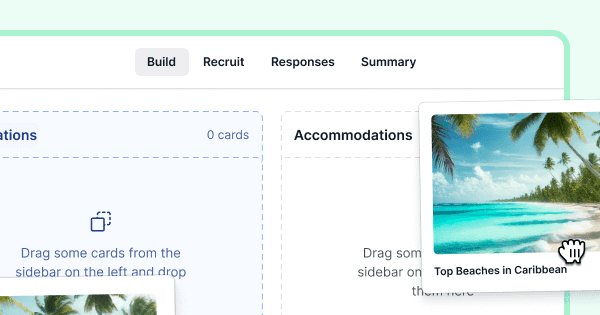How to teach research to non-researchers

Rhys Hillan
Research Manager at Ballpark

In September, our Research Manager, Rhys Hillan, gave a talk at WaysConf in Krakow about democratizing research. Specifically, he discussed how to upskill non-research colleagues so they can conduct research independently. But what does this look like in practice? And how can you teach non-researchers to integrate research into their roles without diminishing the value of full-time researchers? Let’s explore.
Why democratizing research matters
Research democratization is a growing trend. Whether you embrace it or remain skeptical, it's a reality we must face. For many organizations, democratizing research means enabling non-research colleagues—those in design, product, or marketing—to include research in their daily tasks with more independence.
This doesn’t devalue full-time researchers. Instead, democratization lets researchers focus on more complex, strategic questions that require deeper expertise. The key is teaching non-researchers to conduct research that complements the work of experienced researchers without sacrificing quality.

How to teach research to non-researchers
Teaching non-researchers the basics of research goes beyond transferring knowledge. It’s about motivating them to invest time and effort in learning a discipline that may seem unrelated to their daily work. Here are some practical steps to teach research effectively:
1. Convince non-researchers of the value of research
Before teaching research, you need to sell its value. Put on your “sales hat” and break it down into one question: How does learning research benefit their role and team?
For example, a product manager may appreciate how early usability testing can lead to fewer costly revisions. A designer may not know how first-click testing or heatmaps can improve the UX of their designs.
Tailor your pitch to each team’s goals. This makes it easier for them to see how research adds value. Also, emphasize the autonomy they’ll gain. Non-researchers often wait for researchers to be available, but by learning to do research themselves, they can control the timing and execution of projects.
2. Provide knowledge that’s practical, not overwhelming
Once non-researchers are convinced, the next step is teaching them what they need to know—without overwhelming them. Here’s how:
Focus on what’s relevant: Tailor training to their roles. A marketing team doesn’t need a deep dive into academic research, but they do need to understand A/B testing, customer surveys, and other tools relevant to their work.
Start with basics: Introduce simple, intuitive tools. Self-service platforms with templates and automation are great starting points for beginners.
Use real-world examples: Show how research directly impacts their roles. Designers, for example, might not realize how recall testing simplifies their work. Make research feel accessible and immediately useful.
3. Support and encourage continuous learning
Upskilling non-researchers isn’t a one-time task. It requires ongoing support. When creating your upskilling plan, keep these points in mind:
Be organized: Clearly define roles and ownership of research processes. This allows full-time researchers to focus on complex projects, while non-researchers handle day-to-day tasks.
Be patient: Learning research can be challenging, especially for those with no experience. Allow time for growth and learning.
Be supportive: Provide plenty of resources, like how-to guides, internal documentation, and open communication channels. Shadowing opportunities can also help non-researchers learn by observing full-time researchers.

Final thoughts on democratizing research
By focusing on organization, patience, and support, researchers can successfully teach non-research colleagues the basics of research. This democratizes research across your organization while allowing full-time researchers to focus on complex projects that need their expertise.
Ultimately, democratizing research isn’t about replacing researchers but expanding the research capabilities of the entire organization. With the right approach, non-researchers can make informed, research-backed decisions that improve the quality of work across all teams.
If you’re ready to democratize research within your organization or have ideas to share, we’d love to hear from you. And if you want to learn more about how Ballpark can help your organization integrate research into every team, visit us at ballparkhq.com.


